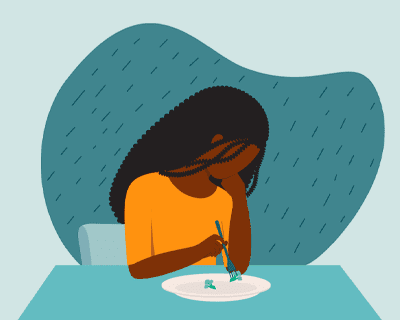Written by Sean Singer, veteran, yogi, and physical health instructor at EHN Bellwood Toronto.
Nothing changes your mood quicker than pain and suffering. You could be having the best time but the moment you experience pain and discomfort, your reality shifts to a different state. However, most common injuries, such as cuts and blunt force traumas to the body, usually heal with no permanent damage other than a scar that might be left behind. On the other hand, acquired brain injuries (ABI’s) are quite the opposite—brain damage is internal and can have symptoms of long-lasting changes which may not be noticeable at first.
We use our brains to make sense of our reality. Nerve endings spread from the brain and spinal cord throughout the body to receive sensory input as well as to activate parts of the body, both voluntarily and autonomically. Brain damage can make it very difficult to interpret sensory information and also to regulate bodily functions.
I would rank the brain as the most important organ in the body. Some would argue that the heart or lungs are more important—and all your organs are important (except for the appendix, nobody knows what that does). However, medical science has been able to transplant hearts, lungs, livers, and other organs—but not the brain. Brain transplants have only been successful in works of fiction and, even then, often have troublesome results (think Dr. Frankenstein’s work).
Without the brain, there is no self. We would be a scarecrow of sorts, stuck wearing plaid and staring at birds. Your personality and the way you think is the product of electrical and chemical impulses and interactions in your brain. The way you think and interpret the reality around you is literally all in your head.
Causes of Acquired Brain Injuries
There are two types of acquired brain injuries (ABI). The first type are sudden onset brain injuries, which result from any of the following causes:
- Trauma
- Infection
- Lack of oxygen (for example, during near drowning or suicide attempts)
- Strokes
- Acute drug use incidents
The second type are insidious onset brain injuries, which result from any of the following causes:
- Chronic alcohol or substance use
- Tumours
- Degenerative neurological diseases
ABI’s are injuries sustained after birth from external forces or influences, rather than genetic or birth defects. ABI’s encompass other brain injuries such as traumatic brain injuries (TBI) which are injuries resulting from an external force causing physical damage to the brain tissues, such as falls, collisions, and blunt force traumas to the head. These cause swelling in the brain, whether it is from internal bleeding (hematoma) or swollen brain tissue (edema). It’s bad news, because that pressure has nowhere to go except on to the soft tissues and blood vessels of the brain—this is called “intracranial pressure.” If the skull is intact, intracranial pressure can cause further damage and cut off blood flow to the brain. To mitigate further damage, it’s necessary to reduce the pressure by stopping any bleeding and removing the causes of the pressure. This can include reducing fluid intake and sometimes even draining some of the cerebrospinal fluid which surrounds the brain.
A Hard Landing: One of My Own Experiences
It was March 2003, in Canadian Forces Base Trenton, where I was training for my Basic Parachute course. After two weeks of running 5-to-15 km twice a day, practicing all the drills and landings, we finally got to jump out of a plane on the third week.
I remember the excitement of stepping out of the plane, counting four seconds before looking up to check if everything opened properly—and realizing it didn’t! I was a bit twisted in the lines, so the technique is to kick like a mad person to unwind the lines.
Less than 30 seconds later, I saw the ground coming up fast. I forgot how to relax for the landing and instead stiffened up. Big mistake. I landed hard on my feet, then butt, then head. I saw stars—flashing black and white—and felt pain in the back of my head. The screw that held my helmet strap had smashed right into my skull, leaving a huge “goose egg” bump on the back of my head. It took me a while to stagger to my feet, gathering up my parachute from the snow-covered ground, and then holding snow on the big bump that had formed on my head.
I managed to get back to the others and stated that I was hungry for lunch. They promptly reminded me that it was 3 pm and that we had already had lunch. I had zero recollection of eating and couldn’t remember much of the rest of the day either. I was a little worried, but never reported anything for fear of being taken off the course for medical reasons. But I was sure I’d had at least a minor concussion, if not some sort of mild acquired brain injury (ABI).
Brain Damage Symptoms From Acquired Brain Injuries
One day, I thought back to all the times I’ve bumped my head and I realized that it had happened a lot, but I also couldn’t remember much of the details either. Factor in that I was in a coma due to a serious infection when I was 4 years old; that I’ve had 2 car crashes; and the parachute incident—it’s a wonder that I can actually think and type the words on this page!
The kicker about acquired brain injuries (ABI) is that they are not obvious. Unless you have a big scar on your head, most people won’t recognize that you’ve had ABI’s, and perhaps you might not know yourself. So, what are some of the symptoms of ABI’s? Some commonly observed and reported brain damage symptoms are the following:
- Changes in personality
- Memory loss or problems
- Dysregulation of emotions
- Aggressive behaviours
- Self-centred attitude
- Poor concentration
- Lack of awareness of deficits
- Inappropriate sexual behaviours
Coping With Brain Damage Symptoms
I can say that I have experienced all of the above brain damage symptoms and still experience them from time to time. When I wasn’t aware that these symptoms were caused by acquired brain injuries (ABI) and post-traumatic stress disorder (PTSD) I thought it was normal for me to behave this way, and there was a denial of any problems or issues. This was a coping mechanism to avoid facing the fear and knowledge that something was not right, that I was broken somehow.
Once I acknowledged that I had indeed suffered ABI’s, I was able to cope more constructively. I had to be kind to myself and practice self-compassion. I had to deal with the guilt of how I had behaved towards strangers, friends, and family. The practice of mindfulness through yoga, meditation, and Qigong allowed me to become aware of my symptoms. Using this awareness, I was able to change my behaviours, to see my situation as it was.
How Can You Get Help With Acquired Brain Injuries?
Help starts with you and your willingness and courage to admit that you need help. This is so powerful and it alone can shift your perspective. Friends and family can offer emotional support and help observe when you exhibit symptoms. Seeking professional help from doctors and therapists who are experienced treating acquired brain injuries (ABI) will make a big difference for your recovery.
There is light at the end of the tunnel, but you must also accept that having an ABI changes you forever. If you’ve had an ABI, your past self is gone and there’s nothing you can do about it. Also recognize that every breath is a new beginning, every moment is unique and wonderful as well.
Further Reading
Learn more about brain damage symptoms and acquired brain injuries (ABI) on Canada Brain Injury’s website.




